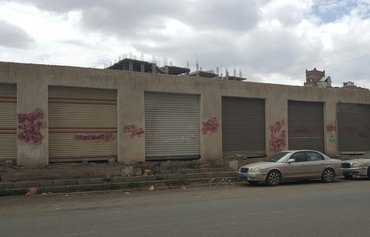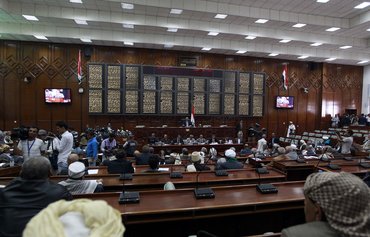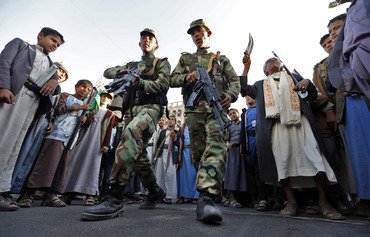Sanaa is seeing a steady flight of parliament members and civilian and military leaders to areas controlled by the legitimate government, amid growing divisions within the Iran-backed Houthis (Ansarallah), experts tell Al-Mashareq.
The failure of the Houthis' political wing to put a stop to the Yemeni army and Arab coalition's advance on al-Hodeidah, and the rising number of casualties among Houthi fighters, have caused deep fissures within the militia, sources in Sanaa told Asharq al-Awsat newspaper.
Those divisions are a result of the "grave defeats [the militia] suffered on the ground", Yemeni army spokesman Brig. Gen. Abdo Abdullah Majali told the paper on July 31st.
More than 30 leading figures, including MPs and security and military leaders, have fled to areas under the control of the legitimate government in July because of the widening dispute among Houthi leaders, he said.
"Observers inside Sanaa expect the number of fleeing leaders to rise in the coming period," he said, noting that these leaders belong to all administrative and military sectors.
MP Hebatullah Sharim for al-Durayhimi district in southern al-Hodeidah and a number of MPs from Raymah province, affiliated with the General People’s Congress (GPC), fled to Aden on July 18th, according to local media.
On May 24th, deputy speaker of parliament and GPC member Nasser Bajil arrived in Shabwa province.
He was among 10 MPs who fled Sanaa. They hail from the provinces of Ibb, Dhamar, Taiz, al-Jawf, Raymah, al-Hodeidah and Shabwa.
Tighter security, higher risks
The Houthis have enforced tight security measures on members of parliament to prevent them from escaping, Asharq al-Awsat reported.
Houthi political council president Mahdi al-Mashat summoned head of parliament Yahya al-Rai and his deputy to a meeting in Sanaa in July where he expressed anger at the continuing escape of MPs to government-controlled areas, the newspaper said.
Al-Mashat ordered al-Rai to pass a law that criminalises the flight of MPs to join areas under the control of the legitimate government or outside Yemen as "an act of treason", it said.
The law also would allow the militia to confiscate the MPs' properties, it added.
Everyone who gets the opportunity to escape the Houthi militia is doing so, lawyer and activist Abdul Rahman Barman told Al-Mashareq
"With each passing day and week, we will be seeing a larger number of leaders escaping, particularly MPs," he said.
There are risks associated with escaping Sanaa, Barman said, including the risk that the relatives of the fleeing political leaders face, and the possibility of their properties getting looted by the militia.
"Some MPs were forced to sell their homes at meager prices or at one third of their value," he added.
Yemenis reject the Houthis, he said, and the "only people who belong to this militia" are those who subscribe to the Houthi ideology, or people who are forced to do it or lured by the salary.
Looking for safety
"The dangers these MPs and leaders face are many, including being arrested, killed, having their property looted or forced to appear in the media to issue statements and declare positions that are supportive of the [Houthis]," political analyst Waddah al-Jalil told Al-Mashareq.
Politicians and leaders started to escape right after the Houthis seized control of Sanaa in 2014 with the help of late president Ali Abdullah Saleh's party, he said.
"Those who disagreed politically with Saleh and the Houthis preferred not to stay in Sanaa," he said.
Soon after Saleh’s killing in December 2017 by the Houthis, his loyalists began fleeing to government-controlled areas to avoid Houthi retaliation, al-Jalil said.
Those who are fleeing Houthi areas seek "a semblance of a state that provides them security", GPC leader Adel al-Shogaa told Al-Mashareq.
"Their suffering stems from a lack of personal safety and livelihood security" under Houthi rule, he added.

![Yemeni fighters from the Popular Resistance Committees, supporting forces loyal to the government, attend a graduation ceremony in the city of Taez July 17th, 2018. [Ahmad al-Basha/AFP]](/cnmi_am/images/2018/08/09/13905-yemen-houthis-escapes-600_384.jpg)






